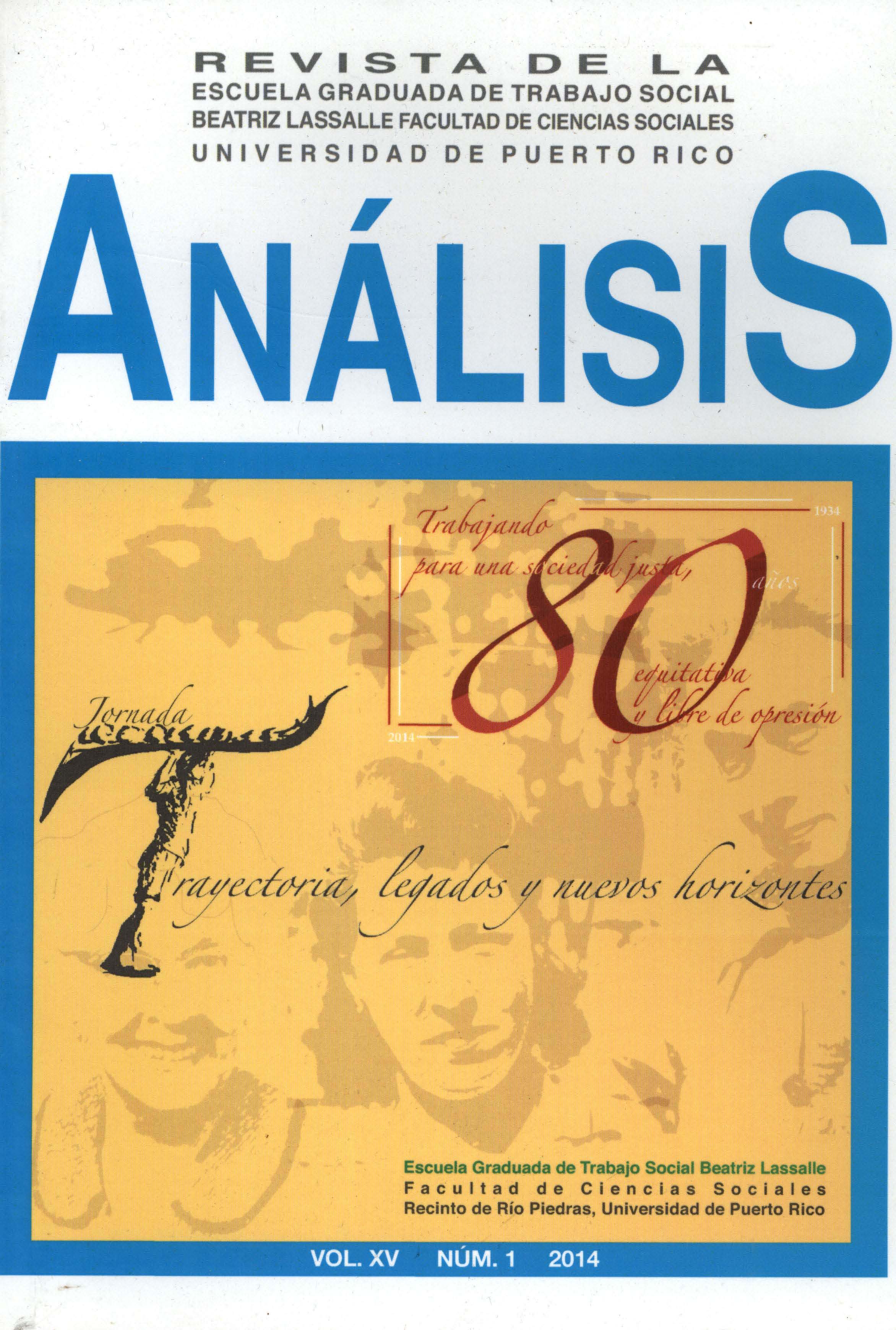Abstract
The approval of the Senate's Project 63 at the end of the 2011 in Puerto Rico (Law for the Protection of the Minors' Rights during the process of Custody Adjudication) has represented a number of challenges for the professionais implicated in the joint custody evaluation, recommendation and adjudication process. Acknowledging that the implementation of a law project like this represents a challenge for Social Workers in a particular way, it is necessary and imperativea critical analysis about the topic. Fort that reason, the following article presents the analysis of human diversity in terms of culture, gender, class, sexual orientation, religion, among other áreas, and their implications for the joint custody evaluation process. In the same way, it addresses the multiple complexities that represent the differences in family structure and organization in the joint custody evaluation as an alternative for the establishment of relations between parents and children. As social workers, we have the commitment to make sure that our professional performance reflects the ethics and core values of the profession. Beyond a responsibility, it is an obligation that our professional authority imposed to us in the process of making recommendations that will impact other people's lives.Downloads
Download data is not yet available.

